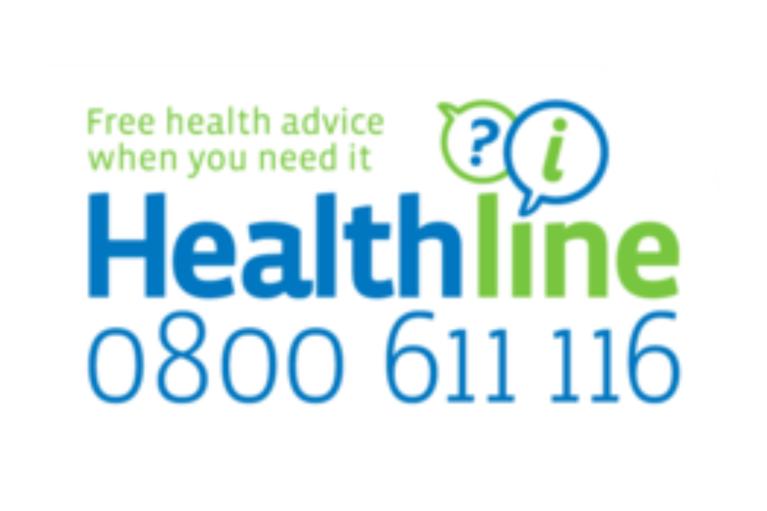Key points about reflux
- reflux is when milk or food from your child’s stomach comes back up into their food pipe or mouth
- it's very common and doesn’t usually need any tests or medical treatments
- most pēpi grow out of reflux before they are 1 year old
- see a health professional if you are worried
What is reflux?
Reflux is when milk or food from your child’s stomach comes back up into their food pipe (oesophagus) or mouth. The food pipe is a long tube of muscle that runs from the mouth to the stomach.
The medical name for reflux is gastro-oesophageal reflux, or 'GOR'.
Reflux is very common and happens in a lot of pēpi. Reflux doesn’t usually need any tests or medical treatments.

Why do babies get reflux?
Milk and food in the stomach is more likely to come back up into a baby's food pipe and mouth because:
- the muscles (sphincter) between a baby's stomach and food pipe are less well developed
- young pēpi drink milk - it's easier for milk to reflux than solid food
- pēpi spend more time lying down
Signs and symptoms of reflux
Pēpi often bring up milk during or shortly after feeding. This is sometimes called spilling or reflux and is different to vomiting. Reflux is effortless. Vomiting is forceful.
You might hear your baby burp, belch or swallow hard. Most reflux is swallowed back into the stomach. Sometimes reflux comes all the way back up into your baby's mouth. Reflux does not usually harm your baby and is unlikely to cause problems later on in life.
How long reflux lasts
Although it can be very distressing to parents reflux usually gets better by itself.
Reflux usually begins before pēpi are 8 weeks old and can get worse until they are around 4 months of age. Most pēpi get better before they are 1 year old. This happens because pēpi are spending more time sitting and standing by this age. They are also eating more solid foods.
A very small number of pēpi continue to have symptoms after the toddler period.
Things you can try to help your baby's reflux
Reflux can be upsetting for parents. It is natural to be worried that something is wrong.
There are a number of simple steps you can take that may help you and your baby:
- take your time with feeds and try to stay calm and relaxed
- burp or ‘wind’ your baby with feeding
- don't force them to take more milk than they want - some pēpi feed small amounts often
- if you're bottle feeding, check that the flow of milk is not too fast - giving milk too quickly can make reflux worse
- hold your baby upright for a short time after feeding
Remember, if your baby brings up a lot of milk, they may be hungry again quite quickly. If that happens, you might need to feed them again sooner than usual.
Is there anything else I should do about reflux?
For most pēpi, you don't have to do anything about reflux. It is a natural process that will get better by itself.
Changing formulas won't help the reflux and neither will changing from breastfeeding to bottle feeding.
Reach out for support
If you are struggling to feed your baby or feel like they're not settling well after feeds, it's important to reach out for support. Talk to a whānau member or trusted friend. You can also contact PlunketLine and Healthline for free advice and support.
PlunketLine is available 24 hours a day, 7 days a week, on 0800 933 922 for advice and support for you, your baby and your whānau. Calls are free from cell phones. You do not need to be registered with Plunket to use this service.
Healthline is available 24 hours a day, 7 days a week on 0800 611 116. Call Healthline if you need advice about a child of any age who is unwell, hurt, or has any symptoms of sickness. It's free to callers throughout New Zealand, including from a mobile phone.
What You Can Do When Your Baby Cries
When to get medical help for your baby
See your health professional urgently if:
- you are worried
- the reflux becomes forceful
- the reflux is green or dark yellow
- you see blood in the reflux
- there are changes in your baby that you are not sure about
- the reflux carries on after your baby turns 1
- you are getting very distressed about feeding your baby
Can reflux cause any other problems?
Reflux won't normally cause other problems.
In a very small number of pēpi, reflux can lead to medical problems. In this case, your baby might have gastro-oesophageal reflux disease (GORD).
A baby with GORD may have:
- long or frequent periods of irritability and crying
- blood visible in the reflux
- back arching after feeds
- poor sleep
- poor weight gain
- a long-lasting cough or wheezy breathing
- repeated chest infections
If you are worried about any of these signs, see a health professional. They will discuss with you whether your baby needs any tests or treatments.
References
- Gastro-oesophageal reflux disease in children and young people: diagnosis and management. NICE (National Institute for Health and Care Excellence), UK.
- Gastro-oesophageal reflux and GORD. Raising Children Network. Australia.
- Reflux (GOR) and GORD. Royal Children’s Hospital Melbourne.


